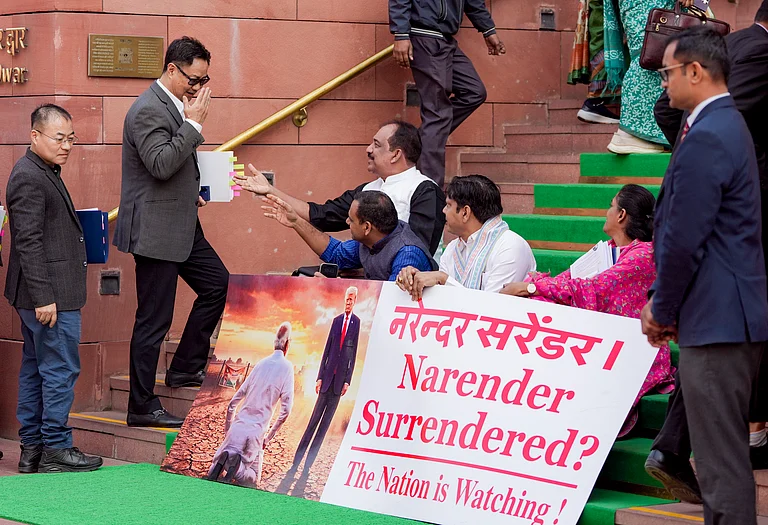Each year, 12 million girls are married before the age of 18 and that’s 23 girls every minute. In three small villages in Rajasthan, a non-profit organization is trying to change this through football where 200 teenage girls are playing and training regularly. What sets them apart is that almost all of them are child brides. Taking inspiration from this story, Vijayeta Kumar’s documentary ‘Kicking Balls’ explore their sisterhood and journey as they gain confidence, independence, and agency to stand up to the patriarchy and say no to child marriage. The documentary is produced by Oscar-nominated Guneet Monga.

In an interview with Outlook, Vijayeta Kumar, an independent director, talks about the making of the documentary, how difficult was it to convince real-life girls to be part of this project, and the pros and cons of being an independent filmmaker.
Excerpts from the conversation:
Q. How did you come across this real-life story and what moved you as a director about this?
Ajmer is my hometown. A few years back, I was there and saw girls playing football in my old school. I got curious because the school did not have women's football. And that's how I found out who they were and their story, and the great work being done by Mahila Jan Adhikar Samiti to stop child marriage through football. What moved me was the fact that they were in a remote part of the country, going about their rebellion and fighting the patriarchy, caste oppression, and their right to go to school. It's an exploration of everyday feminism, and unbelievable courage, that's so inspiring for everyone to watch.
Q. Would you like to take us through the shooting exp? How long did it take and how did you convince the girls to be part of this project?
The project took two years because we shot over multiple schedules over a period of 10-11 months, and then the lockdown happened, which slowed us down a lot. Convincing the girls wasn't easy initially as people are wary of the camera and also conscious of how we will tell their story. But once we built a rapport with the girls and the NGO (Mahila Jan Adhikar Samiti), we became friends and they allowed us into their world with so much love and warmth.
Q. Child marriage is one of the major concerns of Indian society so as a filmmaker, what moved you about the stories of these girls and any particular incident that shook you from within?
This custom has been around for centuries and it does get talked about a lot, which is great. There needs to be more and more awareness about it. Kicking Balls is from the perspective of these young girls and how they are choosing to fight back through football. The film is about young girls who are fighting back not just against child marriage but also patriarchy in general. Football has helped them find the self-confidence and assertiveness to stand up for themselves. They are well aware of why child marriage is bad, and this is how they are fighting it. And NGOs like Mahila Janadhikar Samiti are doing great work in helping them through it. Sports go beyond what is obvious. It becomes a way of life and teaches you so much as I saw with the girls in the documentary. They have a sisterhood, great camaraderie and now are able to stand their ground and refuse to get married or pursue education and careers too.
Q. How do their stories inspire you as a woman?
We have so much to learn from each other. Everyone is fighting their own battle and all we need is empathy in our interactions. Not just as a woman, it's a story that inspires everyone to go out there, find their tribe and fight for what they want to achieve. Change is slow, but it's inevitable.
Q. The pros and cons of being an independent filmmaker?
Pros: Greater artistic freedom, greater control over your script, flexibility, working with a team that aligns with your vision and helps you achieve that. Cons: Limited resources, controlled budgets, and distribution gets tricky sometimes.
Q. What next?
I've just signed my first feature film, so I'm working on that now.


























